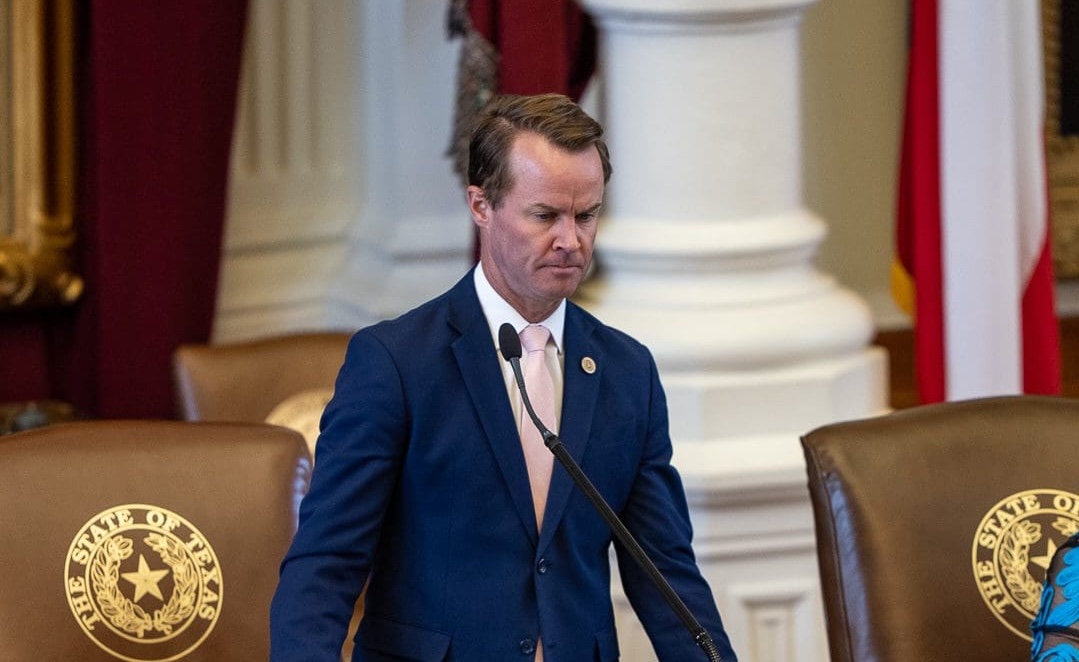Every legislative session has critical moments that help determine policy priorities and set the tone for the remainder of the overall election cycle. One of those moments is when committees are assigned in both chambers.
The partisan and ideological makeup of each committee helps determine the fate of bills making their way through the legislative process. This applies to the individual members of each committee and the assigned committee chairman.
Committee chairmanships are normally given to loyalists of the lieutenant governor’s or speaker’s coalitions in each respective chamber, and they wield a lot of power in determining a piece of legislation’s fate. They decide whether a bill referred to their committee even gets granted a hearing, which can end the life of a bill early in the overall legislative process.
Some bills are even given priority by people like the governor, lieutenant governor, and speaker of the House. Some are negotiated behind the scenes and held hostage for votes on other bills making their way through the process. All of this is done with the overall legislative clock of the 140-day session in mind. Depending on where a bill is in the legislative process, as the session winds down, the clock starts to factor into the overall political calculus of both leadership and individual legislators as they try to position themselves in the best way possible for the coming election cycle.
How Committee Assignments Work
Committee assignments work slightly differently in each chamber.
In the Senate, members are assigned to committees by the lieutenant governor—also called the president of the Senate—as stated in Rule 11.01 of the Senate Rules.
In the House of Representatives, committee membership is determined by a mixture of seniority picks and speaker assignments as stated in Rule 4, Section 2 of the House Rules. In the House, this practice has taken the form of individual members filling out two index cards—one that represents their top three choices overall and one that represents their three preferred seniority picks—with no guarantee they get any of the assignments they requested.
It should be noted that ultimately, the lieutenant governor and speaker of the House determine which bills get referred to each committee, and there are examples in past legislative cycles of bills being assigned to committees where it’s not readily apparent the bill’s subject fits within the assigned committee’s jurisdiction. This discretion alone has determined the fate of many Republican Party of Texas priorities in the past, where a bill could be dead on arrival merely because it was assigned to a committee with an unfriendly chairman or someone of another political stripe.
Republican Party of Texas Legislative Priorities
The Republican Party of Texas’ legislative priorities for 2021 are election integrity, religious freedom, children and gender modification, the abolition of abortion, constitutional carry, monument protection, school choice for all, and a ban on taxpayer-funded lobbying.
Many of these issues have taken the form of a bill in past legislative sessions, and those bills potentially give us an idea of which committees they are likely to be assigned to as a part of the legislative process this cycle. Based on that, we can further analyze their potential prospects based on the political disposition of each committee as provided by various legislative rating schemes. See below:
Senate State Affairs Committee
Committee Membership Averages: TFR – 63/100, YCT – 64/100, TX Values – 79/100, TRL – 80/100
Chairman: Sen. Bryan Hughes (R–Mineola)
Chairman Average: TFR – 81/100, YCT – 82/100, TX Values – 98/100, TRL – 100/100
Partisan Split: 6 Republican / 3 Democrat
Priorities Likely to Go Through Committee: Election Integrity, Religious Freedom, Children & Gender Modification, Abolition of Abortion, Constitutional Carry, and Taxpayer-Funded Lobbying Ban
Committee Membership Averages: TFR – 46/100, YCT – 50/100 , TX Values – 54/100 , TRL – 46/100
Chairman: Rep. Chris Paddie (R–Marshall )
Chairman Average: TFR – 47/100 , YCT – 57/100 , TX Values – 99/100 , TRL – 100/100
Partisan Split: 8 Republican / 5 Democrat
Priorities Likely to Go Through Committee: Religious Freedom, Children & Gender Modification, and Taxpayer-Funded Lobbying Ban
Committee Membership Averages: TFR – 50/100, YCT – 53/100
Chairman: Rep. Briscoe Cain (R–Deer Park)
Chairman Average: TFR – 94/100, YCT – 97/100
Partisan Split: 5 Republican / 4 Democrat
Priorities Likely to Go Through Committee: Election Integrity
House Judiciary & Civil Jurisprudence Committee
Committee Membership Averages: TFR – 53/100 , YCT – 59/100 , TX Values – 53/100, TRL – 47/100
Chairman: Rep. Jeff Leach (R–Allen)
Chairman Average: TFR – 63/100, YCT – 71/100, TX Values – 90/100, TRL – 60/100
Partisan Split: 5 Republican / 4 Democrat
Priorities Likely to Go Through Committee: Abolition of Abortion
House Homeland Security & Public Safety Committee
Committee Membership Averages: TFR – 64/100, YCT – 70/100
Chairman: Rep. James White (R–Hillister)
Chairman Average: TFR – 64/100, YCT – 80/100
Partisan Split: 6 Republican / 3 Democrat
Priorities Likely to Go Through Committee: Constitutional Carry
Senate Natural Resources & Economic Development Committee
Committee Membership Averages: TFR – 58/100, YCT – 58/100, TX Values – 66/100
Chairman: Sen. Brian Birdwell (R–Granbury)
Chairman Average: TFR – 70/100, YCT – 72/100, TX Values – 98/100
Partisan Split: 5 Republican / 4 Democrat
Priorities Likely to Go Through Committee: Monument Protection
House Culture, Recreation & Tourism Committee
Committee Membership Averages: TFR – 42/100, YCT – 49/100, TX Values – 49/100
Chairman: Rep. Ken King (R–Canadian)
Chairman Average: TFR – 37/100, YCT – 48/100, TX Values – 68/100
Partisan Split: 5 Republican / 4 Democrat
Priorities Likely to Go Through Committee: Monument Protection
Committee Membership Averages: TFR – 62/100 , YCT – 64/100 , TX Values – 73/100
Chairman: Sen. Larry Taylor (R–Friendswood)
Chairman Average: TFR – 65/100, YCT – 70/100 , TX Values – 93/100
Partisan Split: 7 Republican / 4 Democrat
Priorities Likely to Go Through Committee: School Choice for All
House Public Education Committee
Committee Membership Averages: TFR – 35/100, YCT – 41/100, TX Values – 44/100
Chairman: Rep. Harold Dutton (D–Houston)
Chairman Average: TFR – 27/100, YCT – 29/100, TX Values – 8/100
Partisan Split: 7 Republican /6 Democrat
Priorities Likely to Go Through Committee: School Choice for All
Past as Precedent
During the 86th Legislative Session (2019), an election integrity omnibus bill passed the Senate but died in the House Calendars Committee after being heard a month later by the House Elections Committee.
A bill banning taxpayer-funded lobbying passed the Senate but ultimately died on the House floor.
The current House Speaker Dade Phelan (R–Beaumont) was a joint author of this bill and chaired the House State Affairs Committee that passed it out of committee, which might bode well for its prospects this cycle.
A bill working to abolish abortion was given a hearing in the House Judiciary & Civil Jurisprudence Committee but was never voted on.
One bill providing for monument protection passed the Senate but died in the House Calendars Committee.
Constitutional carry was referred to the House Homeland Security & Public Safety Committee but was never given a hearing.
During the 85th Legislative Session (2017) a school choice bill was passed out of the Senate but never received a hearing in the House Public Education Committee.
Likewise, another constitutional carry bill was given a hearing in the House Homeland Security & Public Safety Committee but was never voted on.
This history is not exhaustive by any means of all legislative priorities, but it does shed light on where each issue starts to meet its fate and how the disposition of committees can be to blame.
Regardless, it is unclear this early in the 87th Legislative Session which bills will move through the legislative process. Bills cannot even start to be considered until after the filing deadline, which is March 12—60 days into the legislative session—unless deemed a priority item by the governor.
This and more will ultimately decide each RPT priority’s fate. Will this be the cycle that the Republican-controlled Legislature actually passes its own party’s legislative priorities?
Rating/Index Sources Used:
Texans for Fiscal Responsibility (TFR) Index
Young Conservatives of Texas (YCT) Ratings
Texas Values Action (TX Values) Ratings
Texas Right to Life (TRL) Ratings





